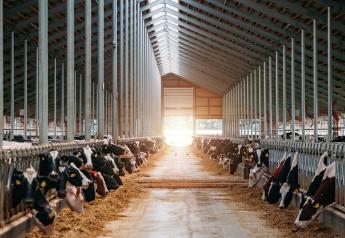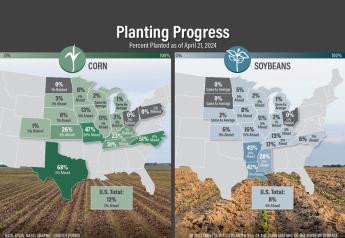Senate Approves Farm bill, Helps NY; Fruits, Vegetables Get Crop Insurance

The Senate on Thursday passed a farm bill that, while cutting subsidies for farmers nationwide, includes some good news for specialty crop producers and dairyfarmers in New York.
The five-year bill, which passed by a 64-35 vote, expands the federal crop insurance program to cover fruit and vegetable growers, who in the past have experienced huge financial losses following devastating storms and freezes.
While not immediately redrawing federal dairy programs, the bill includes a dairy pricing study that could eventually lead to changes sought by the state's milk producers.
Sen. Kirsten E. Gillibrand, a Democrat and the first New Yorker on the Senate Agriculture Committee in nearly four decades, pushed for and won the inclusion of those measures.
"Over the last three years, I've been using my seat on the Senate Agriculture Committee to try to give New Yorkers a voice where they haven't had one in too long," Gillibrand said.
For years, the federal crop insurance program has covered only commodities such as corn and wheat -- but not the fruits and vegetables commonly grown in Western New York.
All that would change under the new farm bill, which also includes a provision allowing dairy industry groups to propose milk pricing reforms at public hearings, in hopes that would produce a new federal dairy policy that would prevent wide swings in milk prices.
The bill would set farm policy for the nation for the next five years at the cost of nearly half a trillion dollars.
It cuts farm subsidies by about $2 billion a year, mostly by eliminating a program that paid some farmers regardless of whether they planted crops.
The bill also cuts the food stamp program by about $4 billion over a decade by tightening eligibility requirements. While Gillibrand opposed those cuts, they're far short of what some Republicans had proposed.
The legislation now moves to the House, where Republicans are expected to push for deeper cuts in the food stamp program, the largest in the bill.
The passage of the measure was a rare bipartisan success in a deeply divided Senate.
Senate Minority Leader Mitch McConnell, R-Ky., called it "one of the finest moments in the Senate in recent times in terms of how you pass a bill."
News wire services contributed to this report.
email: jzremski@buffnews.com







